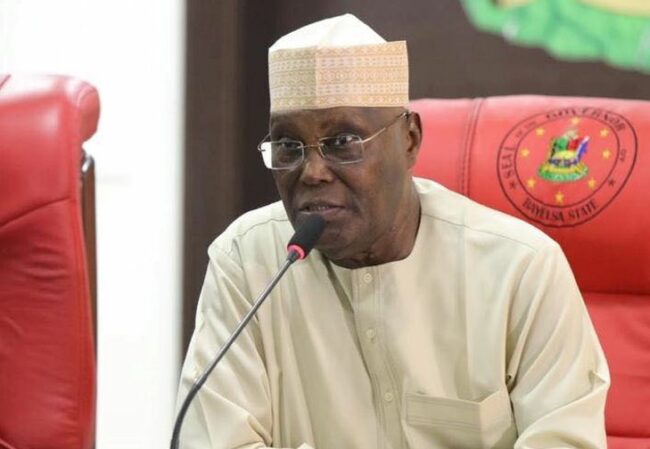Prominent opposition figures have reaffirmed their commitment to ousting the All Progressives Congress (APC)-led administration of President Bola Ahmed Tinubu in the 2027 general elections.
They used the platform of former Rivers State Governor Rotimi Amaechi’s 60th birthday celebration to reflect on the country’s economic and governance challenges over the last two years.
The event held at the Continental Hotel, Abuja, featured separate speeches from former Vice President and 2023 Peoples Democratic Party (PDP) presidential candidate Alhaji Atiku Abubakar, Rotimi Amaechi, and former Kaduna State Governor Mallam Nasiru El-Rufai.
The public lecture was themed: “Weaponization of poverty as a means of underdevelopment: A case study of Nigeria.”
Atiku Abubakar lamented the worsening poverty situation, recalling how Kano, once among the wealthiest northern cities with well-cared-for citizens, now witnesses people sleeping on streets and under bridges. He accused the current government of weaponizing poverty to further its political agenda.
“I wanted to amend the topic of today to add: State Weaponization of poverty. This government is weaponizing poverty, and that is why we are in this alliance to make sure it doesn’t continue,” Atiku said.
Amaechi, the celebrant, explained his refusal to support Bola Tinubu in the 2023 elections was due to his belief that Tinubu lacked the capacity to govern effectively.
“I told Tinubu in Yola that I would not support him; I did not vote for him because of capacity,” Amaechi stated. He criticized the exploitation of ethnic and religious sentiments in elections, describing the political landscape as one where “innocent, uneducated people are manipulated to vote based on ethnicity and religion.”
He also condemned the removal of fuel subsidies, claiming that the benefits are lining the pockets of the elite, while poverty and insecurity worsen across the country.
“I’m ashamed that carrying the green Nigerian passport has become a burden. I was detained in Germany for 30 minutes just because of my passport,” Amaechi recounted.
El-Rufai expressed his disappointment over Nigerians repeatedly electing unsuitable leaders and stressed that their coalition aims to “put Nigeria back on the right track.”
Earlier, the Emir of Kano and former Central Bank Governor, Sanusi Lamido Sanusi, shared his eye-opening experience with poverty after ascending the throne.
“Many Nigerian elites do not understand what poverty is. As an economist, I saw the numbers, but I didn’t truly know poverty until I became Emir,” Sanusi said. He described the dire conditions in rural communities, urging leaders to prioritize the wellbeing of the people over infrastructure projects that mainly benefit the elite.
The guest lecturer, Dr. Chidi Amuta, analyzed the stunted nature of democracy in Africa, noting it was imposed by an unproductive political elite over impoverished populations.
He emphasized that the “multidimensional” poverty in Nigeria continues to challenge governance and development.















